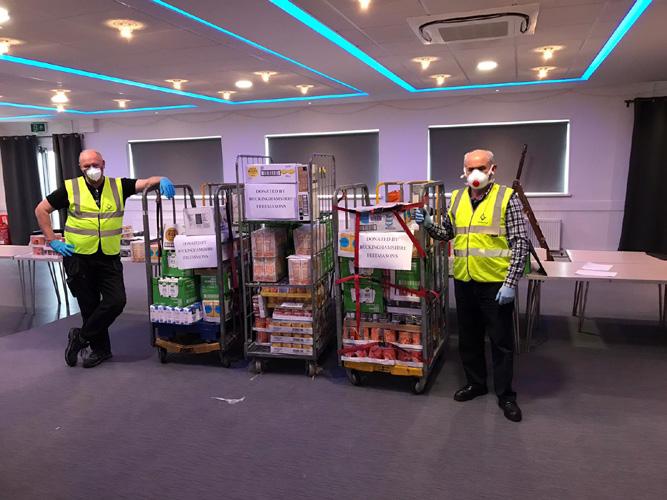
2 minute read
The Bedford Competition (International Short Story & Poetry Awards)
Wendover resident and local writer Isabella Mead has won first prize of £500 in the 2020 Bedford International Poetry Competition, judged by poet Lesley Saunders, for her poem ‘Toy Mouse, Discovered at Vindolanda Roman Fort, May 2020.’
Isabella wrote the poem while on furlough during the first lockdown, coming across an unusual article in the Guardian that was light relief from news of the coronavirus. Curatorial staff at Vindolanda Roman Fort were using their spare time to go through several bags of ancient leather. They discovered amongst them a shape that looked very much like a mouse: perhaps it was a toy. You can read more about the mouse here: www.vindolanda. com/news/roman-leather-mouse-discovered.
The judge Lesley Saunders said about the poem: "This poem captivated me the first time I came across it reading through a whole pile of entries, and I marked it out as one to come back to. But there’s always a possibility that a poem that makes a strong first impression won’t sustain your interest when you come back to it. So I was so pleased to find that I appreciated it more each time I read it. The evocation of other lives and times on the island of Britain is done with an economy of detail, and the ancient superstition to ward off the plague is neatly laid without comment next to the modern archaeologist’s ‘wishful thinking.’ The relationship between past and present is given a very contemporary nuance, without being heavy-handed; the toy mouse is the perfect vehicle for this, as well as being a complete delight in itself."
The Bedford International Poetry Competition opens for entries for its 2021 competition on 1 May; more details are here: www. bedfordwritingcompetition.co.uk.
Toy Mouse, Discovered at Vindolanda Roman Fort, May 2020
A strip of leather, rodent-sized, with whiskers, curved tail, ears, soft incisions for fur, unearthed near a temple, hunched and attentive;
unexpected, like sunlight, and mischievous: he chooses to make his reappearance now, as the dark cities stir with fever;
a subversive reminder that Pliny the Elder suggested kissing a mouse on the mouth as an ideal cure. Or else it’s no more
than the wishful thinking of an archaeologist to sift through a thousand leather cuttings and distinguish this: an atonement, a gift
from the god Apollo, the Lord of Mice, who sent a plague on silver arrows in a fit of anger; and now, as healer,
sending this, a playful semblance, a trace of the real disease. A little vaccine. As sunset falls behind Hadrian’s Wall
we dream up auguries for ourselves from secret hoards, fine-combing the earth for the fortunes it holds. How Apollo was born
clutching a sword, and the cities turned gold.










